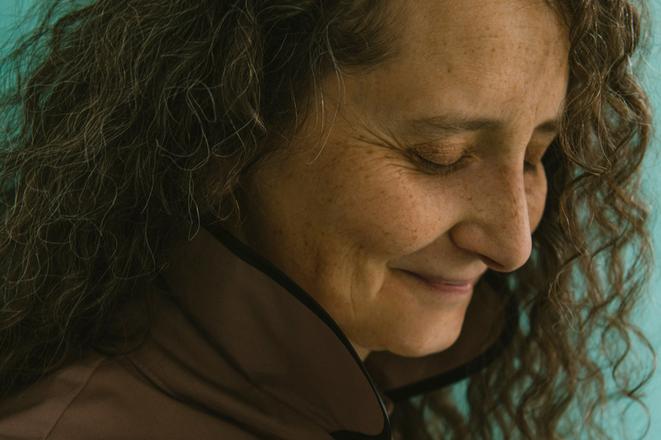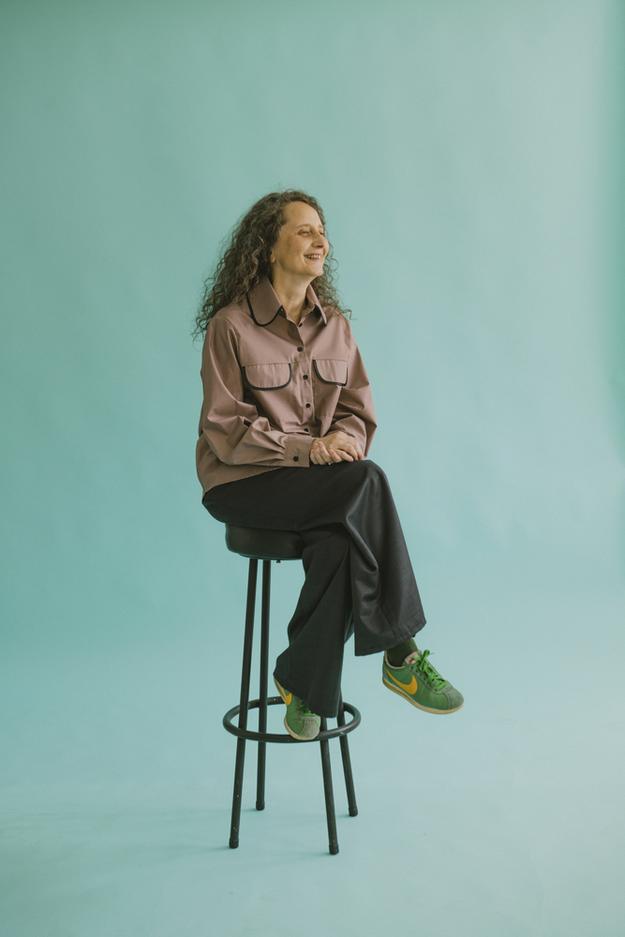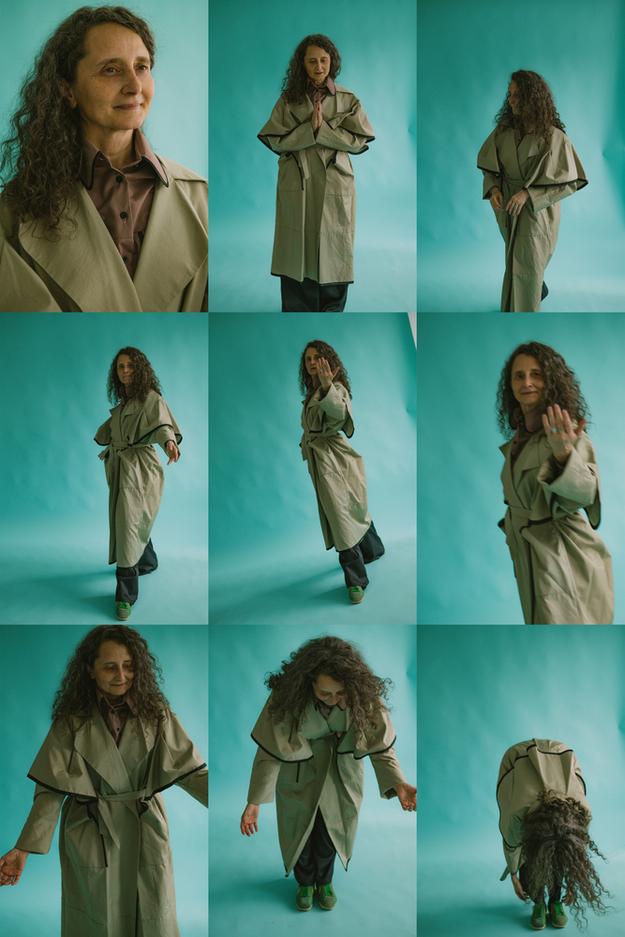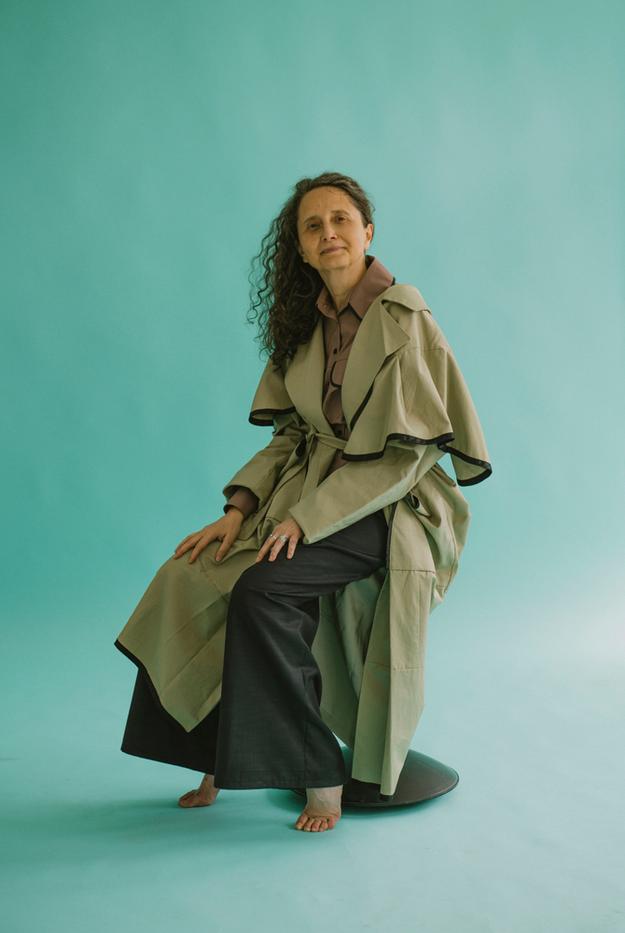After decades in her native Serbia, Katarina Živanović decided to start again in a country she knew nothing about - Slovakia. Once there, she discovered not only a new culture, language and customs, but also a different version of herself.
Serbia’s complex history as part of what was once Yugoslavia and the subsequent break-up of that state into many different countries, played a key part in shaping Živanović’s life as she grew up in Loznica, a town near the Bosnian-Serbian border, and moved to Belgrade later on.
“When I was young, I could not fully understand the historical and ideological context [of Serbia and the break-up of Yugoslavia],” she said in a recent interview with Fjúžn magazine.
At the age of 46 she decided to open a new chapter in her life, moving to Slovakia and managing a cultural centre. Even though she continues to be aware of the importance of her home country in her life, she appears to be fine with living abroad.
“I think I was born in Serbia by accident,” she said.
Some aspects of Živanović ’s lifestyle were in stark contrast to traditional Serbian ways of life. A vegetarian for over 30 years, in a land that adored meat and white bread, she also strayed away from the status quo when it came to religion and her attitudes to traditional Serbian culture. A career-driven individual, she was eager to complete goals, while many of her Serbian colleagues preferred a more relaxed approach to work.
“Serbians would often make fun of each other, saying that they could never be paid as little as they work,” she said.
Growing up she was immersed in what she describes as an artistic world in Serbia that fostered globally recognised talents, including performance artist Marina Abramović, as well as a vibrant jazz, film, and theatre scene.
“You looked around and you saw world-famous artists,” she recalled.
Serbian folklore and traditional culture never really drew her in the same way.
This love and experience of art led her to a career in culture, filling prominent posts, such as Director of the Cultural Centre REX in Belgrade, Director of the Museum of Yugoslavian History, and the head of the Department of Culture in Belgrade.
A vegetarian who loves tea houses
With over two decades of experience in management, she came to Slovakia to take up the position of general manager of the cultural centre in Košice, Tabačka Kulturfabrik. In a completely new environment and facing a language barrier, Živanović recalled that she had to “adjust and start from scratch”.
Having briefly moved to Prague she then took on managing the establishment of a cultural centre in Nitra.
She said her initial transition to Slovakia was mostly positive. Živanović also praised the cultural scenes in both Slovak cities she has lived in.
“Nitra captivated me with its endearing festivals, while in Košice it was the contemporary art events,” she said.
Nitra’s proximity to Vienna, offering her easy access to cultural experiences outside of Slovakia, is another positive to her life in the west Slovak city, along with the tea houses and cafes she likes to spend time in, or rather at their tables outside.
“I also need a diverse offer of vegetarian products in stores,” Živanović added.
However, not all aspects of her life in Nitra are perfect, she confided.
“Group exercising makes me happy. I haven’t yet found a good group in Nitra - I can’t seem to sync my schedule with friends,” she explained, adding though that “I had a perfect trainer in Košice. We used to exercise together with a few people from Tabačka”.
Looking back at her time in Košice, Živanović said language posed a particular challenge at first. With English communication dominant in her workplace, she struggled at first to learn Slovak. This changed when she moved to Nitra though.
“I was much more open, my Slovak language skills improved.”
Having already gone from Serbia to Košice and then Košice to Prague – albeit only briefly – by the time she got to moving to Nitra, the transition to a new city was easier.
“I assimilated the quickest [there], I already knew the process quite well,” she commented.
Foreigners’ Police through a foreigner’s eyes
Živanović describes her experience of Slovakia as enriching.
“I respect local traditions and communities, I try to get to know them. It’s something new that alters my perception of life,” she pointed out.
Indeed, she says her move to Slovakia marked a profound shift in her life, changing her “dramatically”.
“If it weren’t for my life in Slovakia, I wouldn’t be who I am,” she said. “I was getting to know myself again. I had the chance to react differently to situations I had experienced before.”
However, life as a foreigner in Slovakia still poses challenges. Živanović highlighted her regular visits to the Foreigners’ Police.
“In Košice, I used to visit the Foreigners’ Police once a year,” she said. Armed with her newly acquired command of Slovak she differed from the other foreigners there who usually brought translators with them. “I wasn’t the kind of foreigner they usually encountered. That’s probably why they treated me well.”
But her experiences with the Foreigners’ Police in Nitra have been characterised by anxiety, inefficiency, and a lack of empathy on the part of the police.
“The way the office functions makes it impossible for the workers to understand the person on the other side of the counter.”
The Covid-19 pandemic, along with the war in Ukraine, made the system even more complicated, said Živanović, describing the lack of even basic facilities at the institution.
“Toilet paper in the toilets would be good,” she said.
The uncertainty of not knowing whether what she needs will get done when she goes there makes her visits even more stressful.
“It’s as if I did something wrong and was called to the principal in kindergarten to receive my punishment,” she said of her trips there.
Invisible women in Slovak culture
In the world of culture and art, which dominate Živanović ’s life, she sees a notable gender imbalance in Slovakia, with culture centred around men.
“I’m not familiar with Slovak mainstream opera or theatre, so I’m not sure how it works there, but in my field of work, I feel the invisibility of women. It’s as if they weren’t even there, despite the fact that culture would not exist without them,” she said.
Živanović said men are in the spotlight, dominating the field, while women tirelessly work, often for 12 or even 15 hours, with little to no recognition. This permeates even into discussion events where “you have four guests and not even one of them is a woman”.
According to Živanović, there needs to be greater gender balance. “Of course, it shouldn’t be forced. Women working in culture are incredibly capable, but too much of the space is left to men,” she claimed.
Despite some of the challenges she continues to encounter in Slovakia, Živanović is in no doubt that her move to Slovakia was a good choice.
“I have met people here that accepted me. I feel that I am part of the community,” she said.
Author: Hana Trenčanová, Ivana Kohutková


 Katarina Živanović. Photo: Kvet Nguyen
Katarina Živanović. Photo: Kvet Nguyen
 Katarina Živanović. (source: Kvet Nguyen)
Katarina Živanović. (source: Kvet Nguyen)
 Katarina Živanović. (source: Kvet Nguyen)
Katarina Živanović. (source: Kvet Nguyen)
 Katarina Živanović. (source: Kvet Nguyen)
Katarina Živanović. (source: Kvet Nguyen)